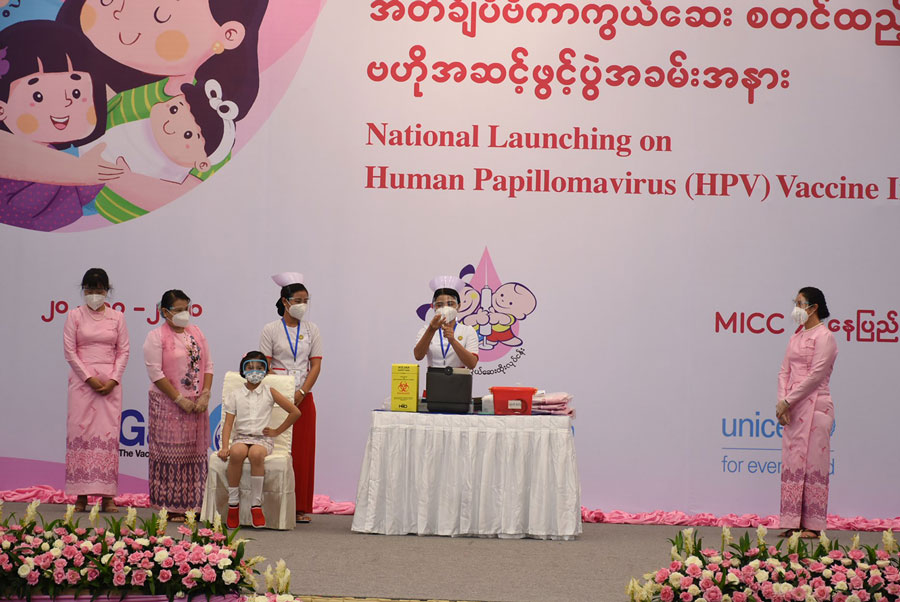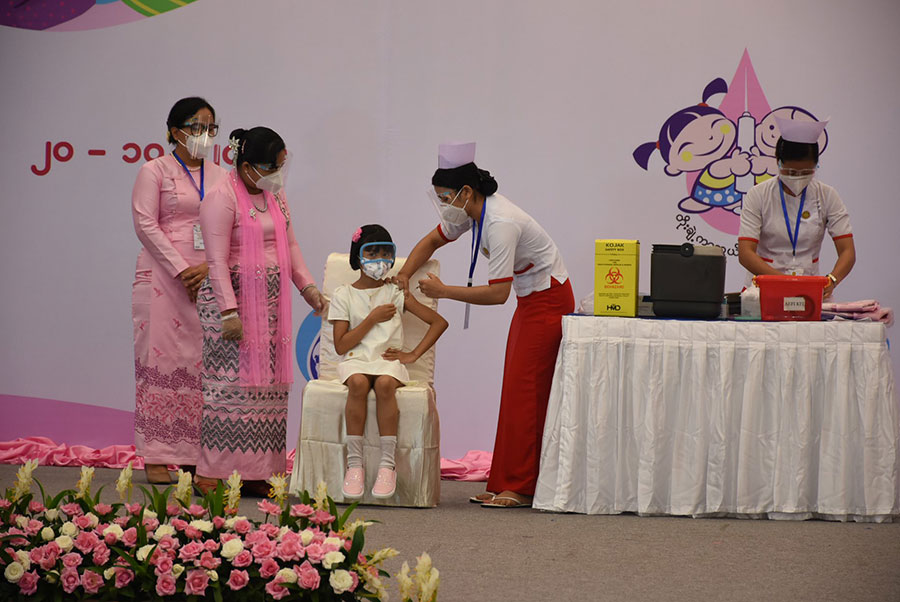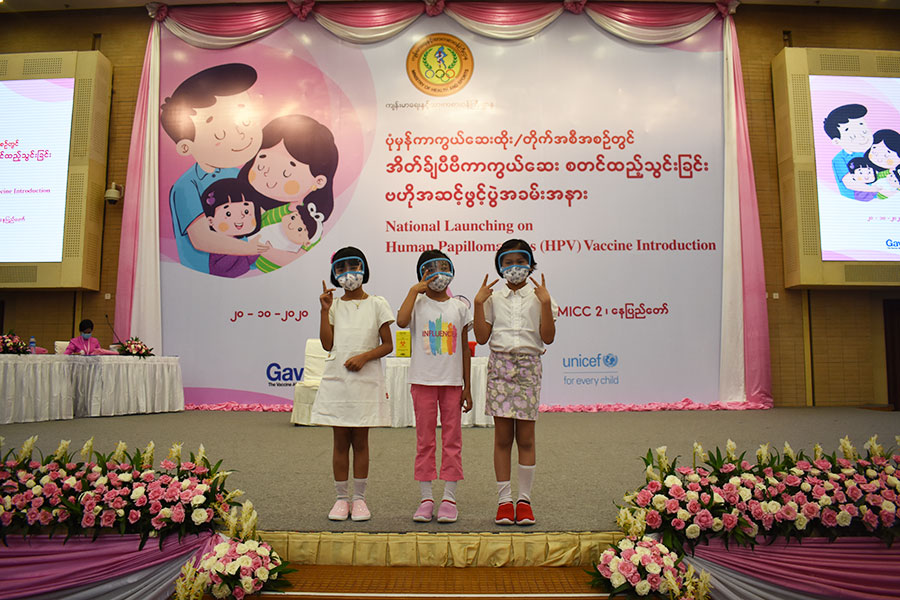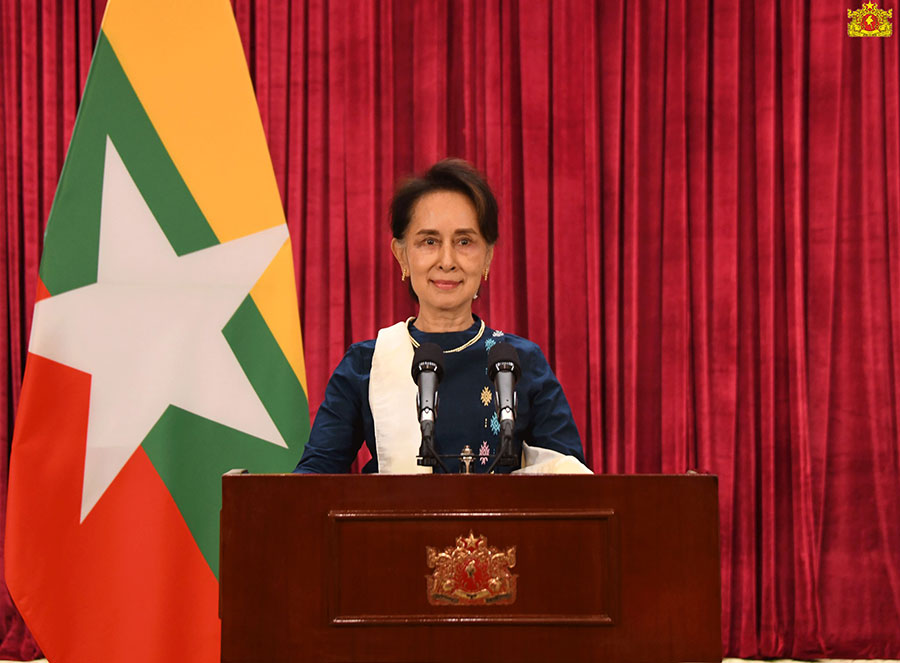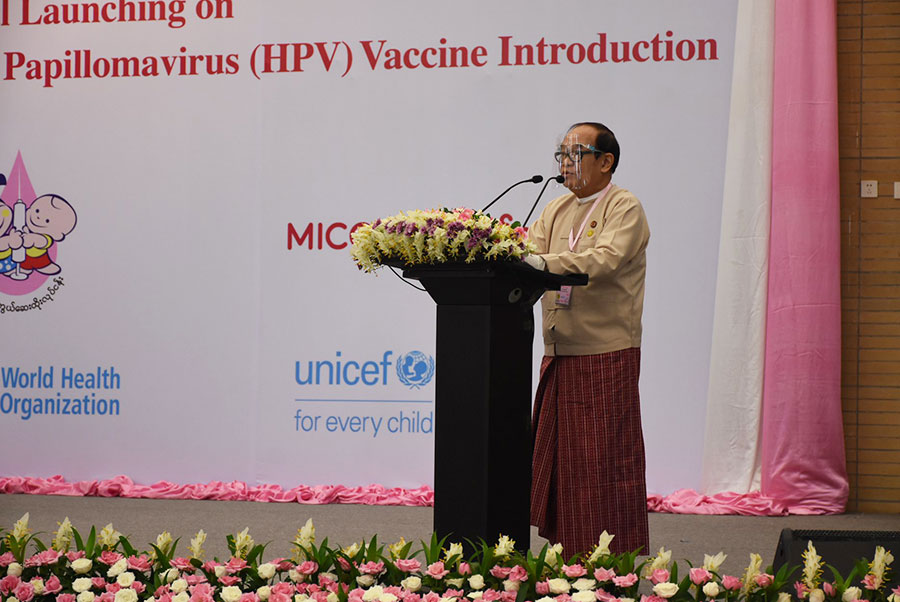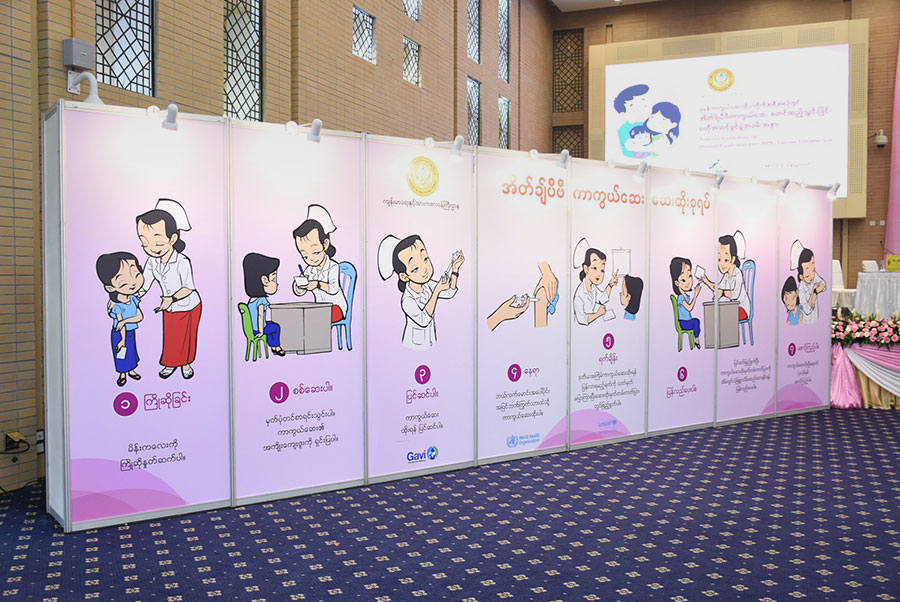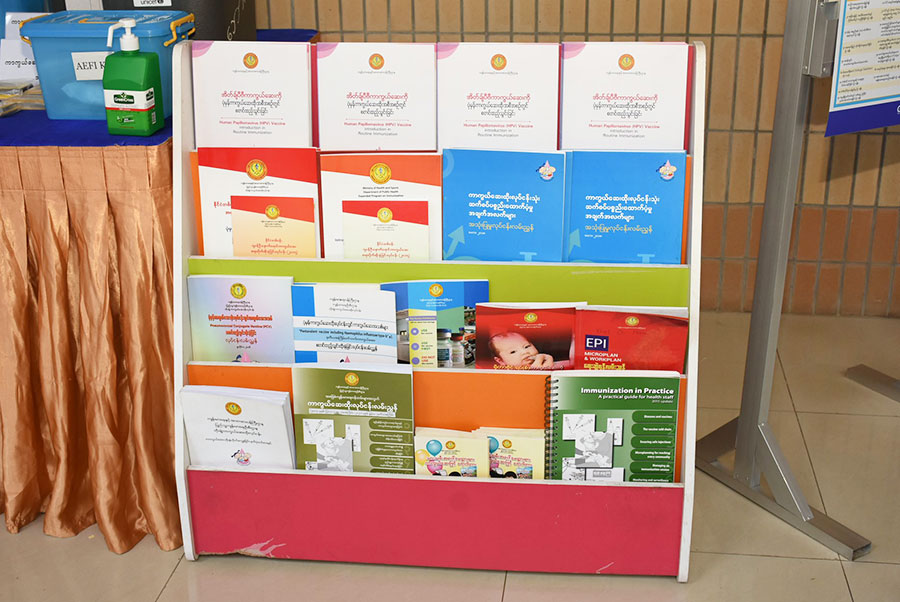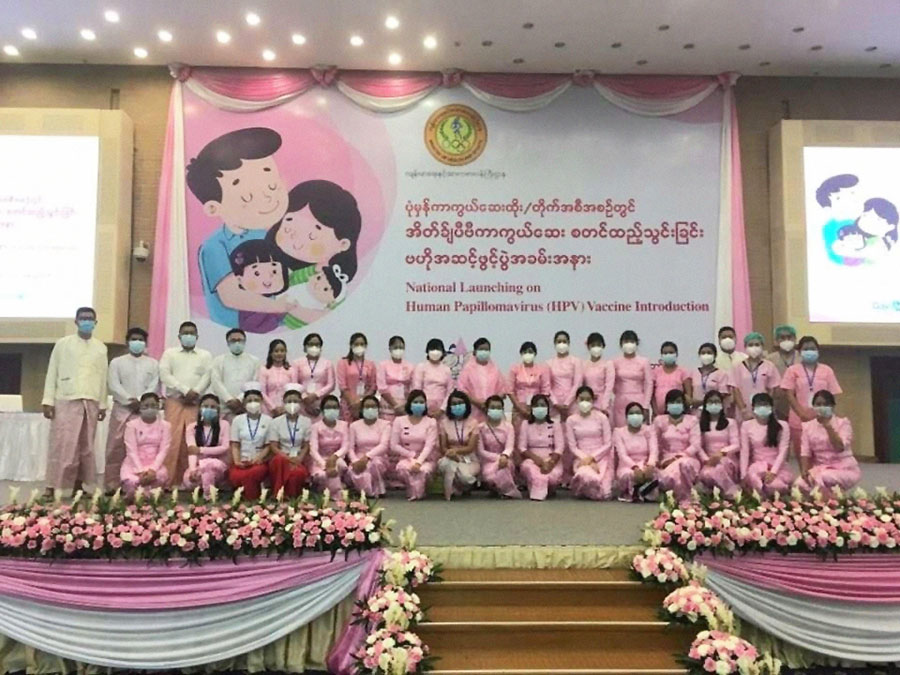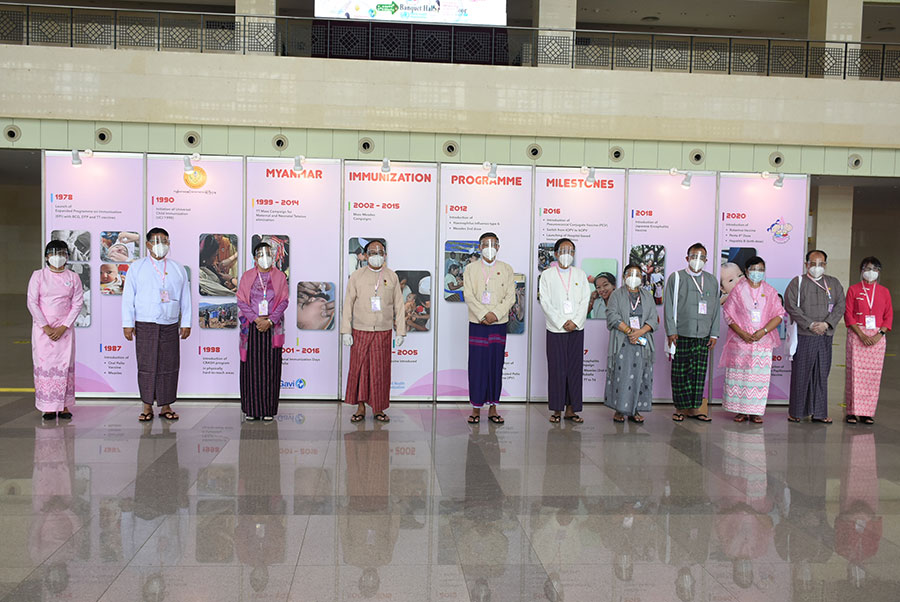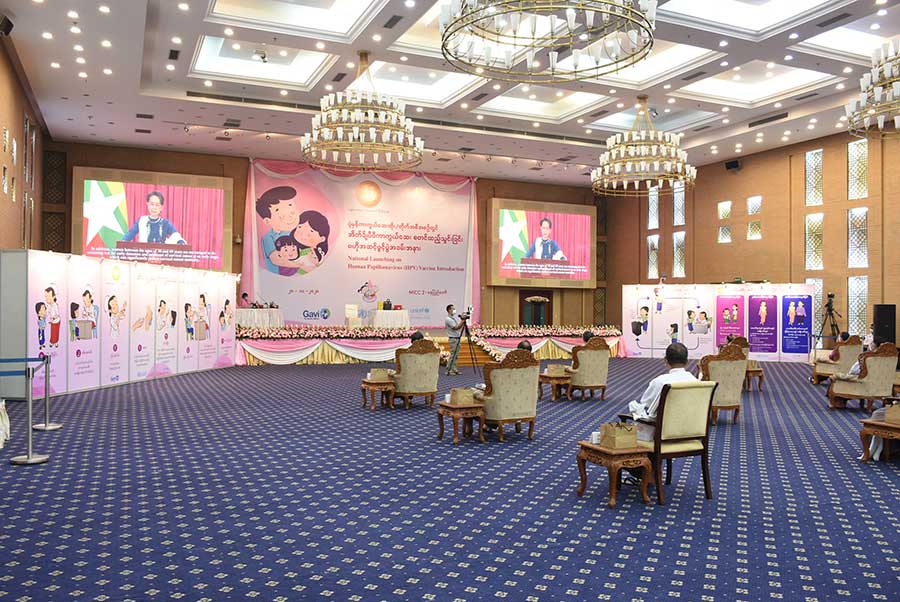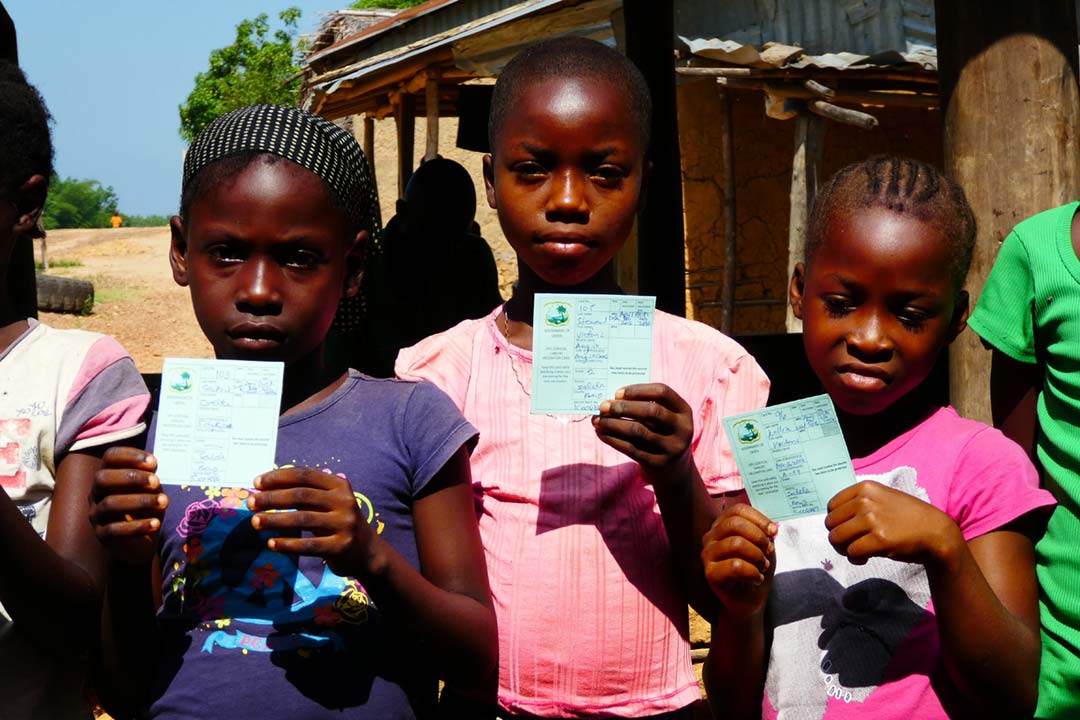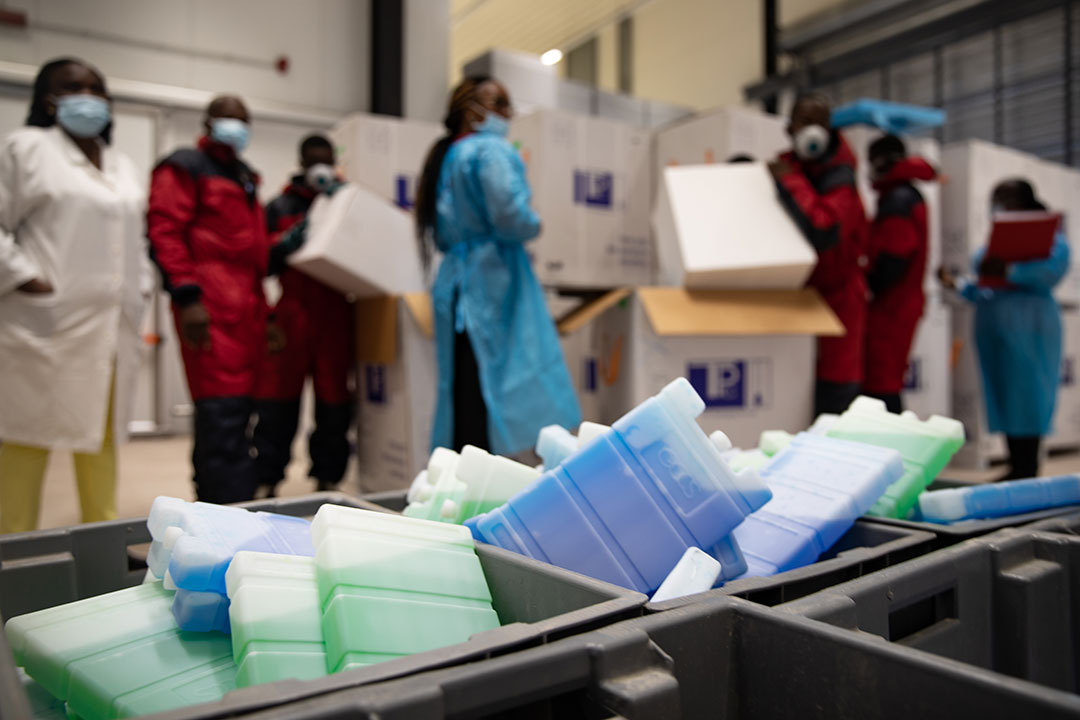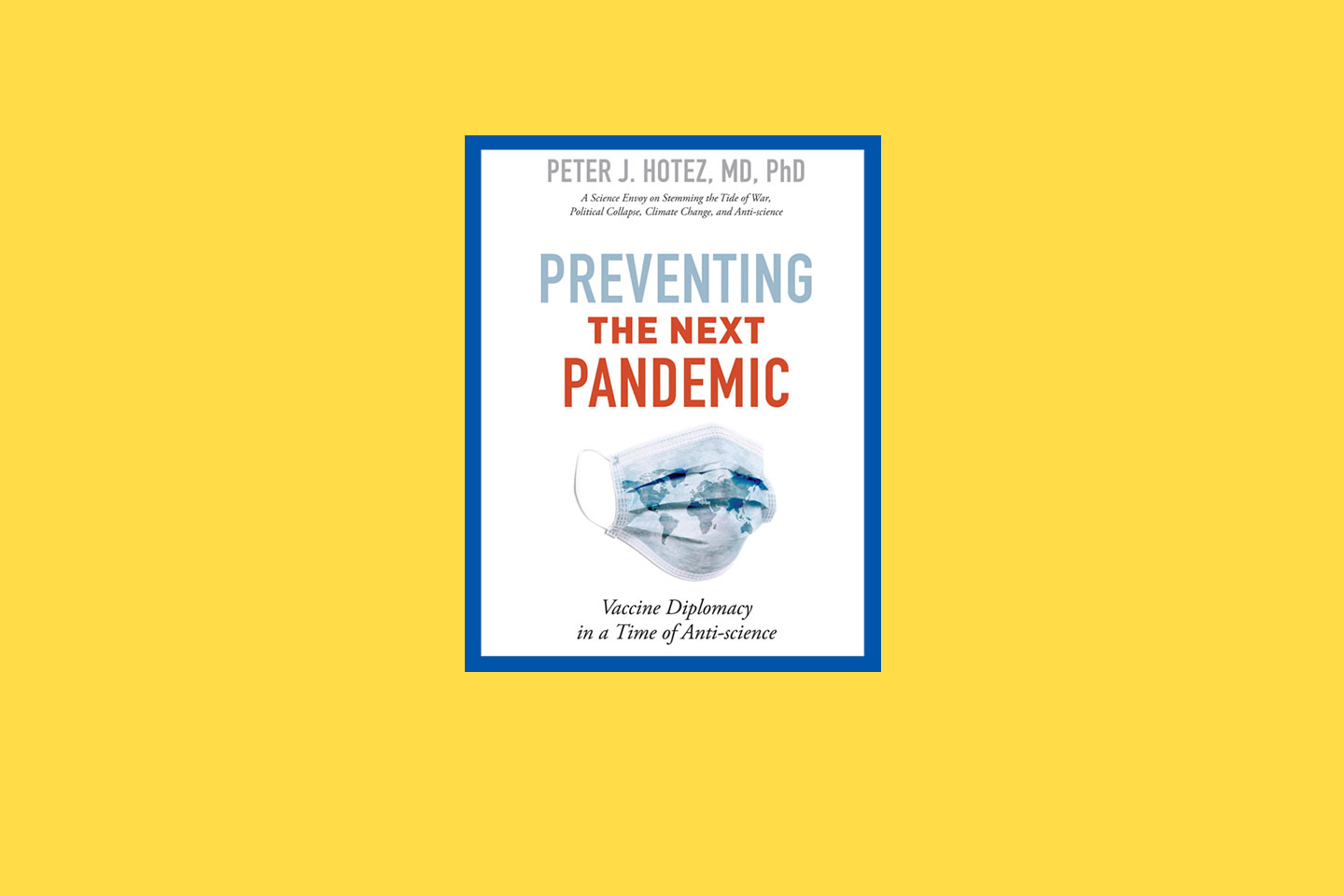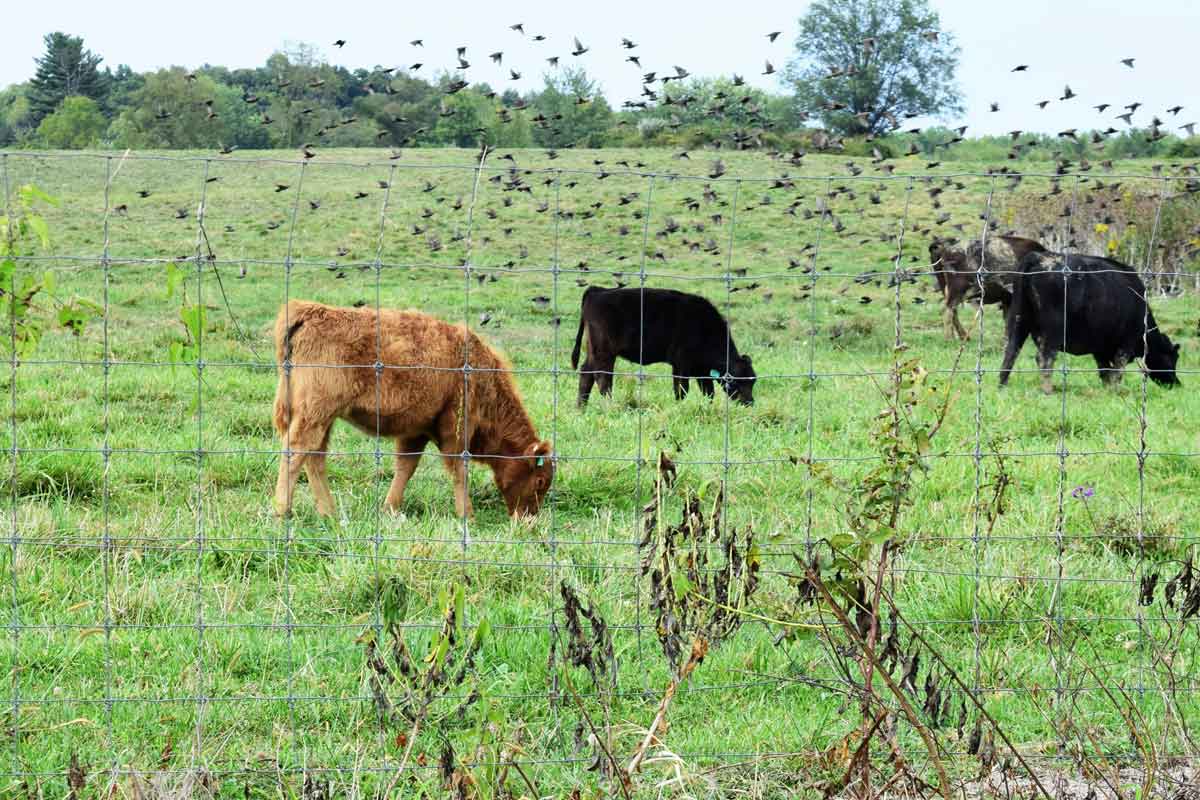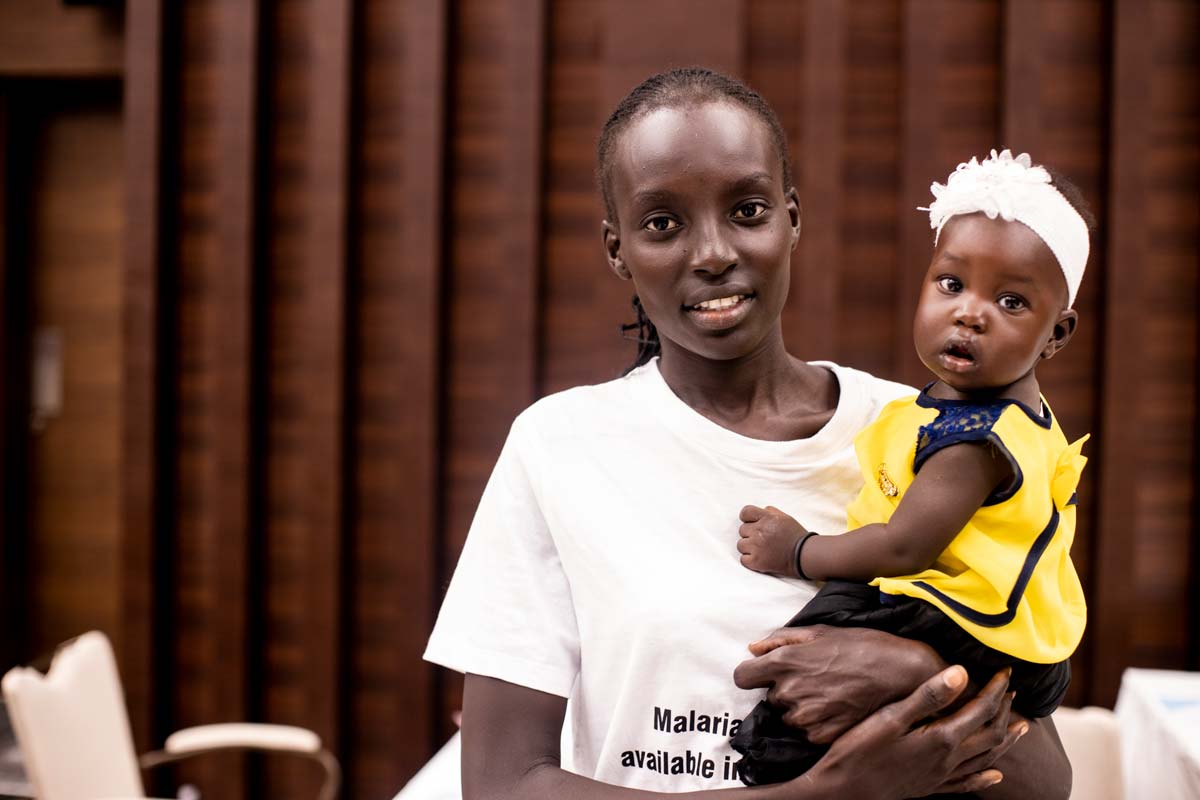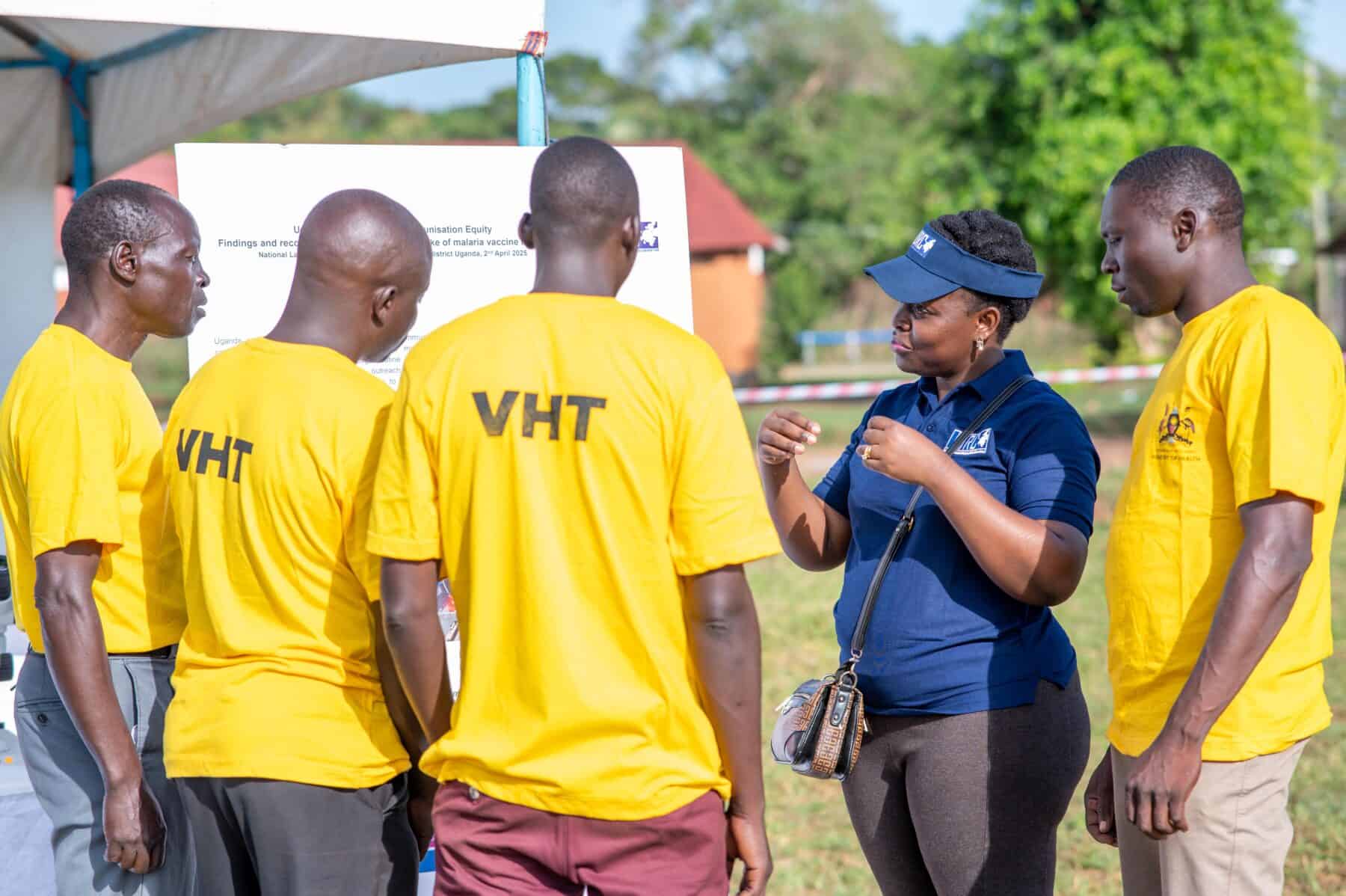Myanmar celebrates the launch of the HPV vaccine
Nearly half a million girls to be protected each year following the launch of the HPV, which will be provided with financial support from Gavi, the Vaccine Alliance. Here’s a closer look at the launch ceremony.
- 28 October 2020
- 3 min read
- by Elinore Court
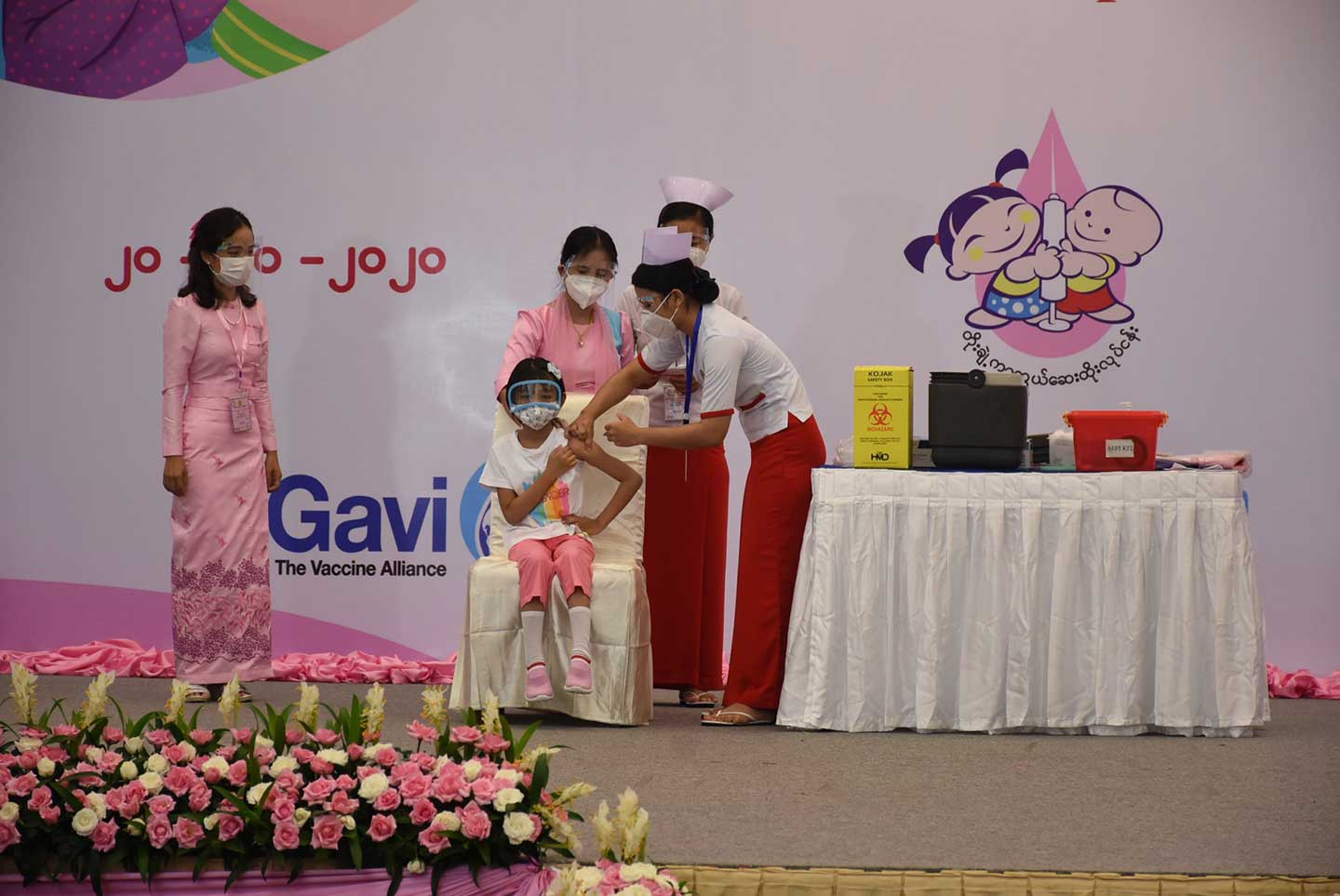
The first girls in Myanmar to receive the human papillomavirus (HPV) vaccines did so amidst great fanfare. The vaccinations took place on stage at a launch ceremony in Nay Pyi Taw, the nation’s capital, on 20 October to celebrate the introduction of the vaccine into Myanmar’s routine immunisation programme.
The launch means that from now on each year around 450,000 girls will be protected from the leading cause of cervical cancer in Myanmar, which currently has the second-highest incidence of cervical cancer in Southeast Asia.
“The introduction of the HPV vaccine into the national immunisation programme, which will be available to all regardless of race, religion and ethnicity, is a huge investment for the government which will be beneficial to the country in the long term,” said State Counsellor H.E. Daw Aung San Suu Kyi. “The availability of effective vaccines will enhance public confidence and trustworthiness and consequently will also improve immunisation coverage of other vaccines.”
The launch means that from now on each year around 450,000 girls will be protected from the leading cause of cervical cancer in Myanmar.
“Gavi, the Vaccine Alliance, provides the HPV vaccines that will be used in Myanmar, and one vial of vaccine cost US$ 4.50. Gavi supports 88% of total vaccine costs while Myanmar government co-finances the remaining 12% of total vaccine costs as well as the operation costs,” said Dirk Gehl, Senior Country Manager, Gavi, the Vaccine Alliance.
“All children have the right to health and wellbeing, and access to vaccines is key to that right. Working closely with the Ministry of Health and Sports, the World Health Organization and Gavi, the Vaccine Alliance, UNICEF will support efforts to bring vaccines to all girls aged 9 and 101 across Myanmar. Our joint efforts will place particular emphasis on reaching those in hard-to-reach areas and regions that are self-administered or controlled by particular ethnic groups,” explained June Kunugi, Representative of UNICEF Myanmar.
The COVID-19 pandemic and subsequent lockdowns have triggered global delays to vaccine introductions and immunisation campaigns due to factors like vaccine shortages, transport interruptions and restricted movements. Despite these added challenges, Lao PDR and Myanmar have introduced the HPV vaccine, with Cameroon to follow shortly.
“Myanmar is among the countries with high rate of deaths due to cervical cancer caused by HPV. This introduction of HPV vaccine also reflects the Myanmar’s Ministry of Health and Sports efforts to achieve the WHO’s cervical cancer elimination target by 2030, all countries to reach < 4 cases of cervical cancer per 100,000 woman-years.” said Dr Stephan Paul Jost, WHO Representative to Myanmar.
